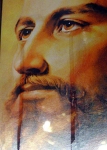20 January 2012
Turkey: Govt eyes secular events, opposition
government and the presidency on the tradition of Ataturk festivities, symbol of the state's secular nature. The alarm has come on a day in which a daily paper provided details on a report by the Association of Protestant Christian Churches noting numerous ''attacks'' on Christian communities. As concerns celebrations linked to the acts of Mustafa Kemal (known as Ataturk, 'Father of the Turks'), the founder of modern Turkey after World War I resulted in closer ties to the West of the country created from the dissolved Ottoman Empire, a high level representative of the People's Republican Party (CNP) has denounced an initiative by Head of State Abdullah Gul to place under review celebrations for national festivities. The move is an attempt by the moderate Islamic party AKP under Turkish Prime Minister Recep Tayyip Erdogan to erode Turkey's secular tradition and that of its founding father, said CHP vice president Birgul Ayman Guler in a statement released yesterday.
These ''shameful acts'', which Erdogan and Gul's party call ''updating'', are in reality - said the politician - an ''attempt to discredit and sweep away what remains of Ataturk.'' Implying that the festivities are mass events that bear little relevance to present times, events redolent of the 1930s or of a dictatorial nation, the presidency confirmed that they are carrying out an ''update''. Heated debate on the matter has been underway for almost a week, when a ministerial circular was issued that (according to a journalistic summary) restricts May 19 student celebrations - a holiday celebrating the day in 1919 on which Ataturk reached Samsun in Anatolia and gave rise to the war of independence - to those held on school property, excluding those in stadiums and in central Ankara. The reason cited for the semi-cancellation of the ceremonies in remembrance of the beginning of the Turkish war of independence is a risk of mishaps and loss of lessons. However, the teachers union has announced an appeal, denouncing an attack on the secular nature of the state, and the CNP have followed in their footsteps in speaking out against it. The cult of Ataturk, and with it the secular nature of the state, is embodied in the enormous mausoleum in Ankara; in an anti-insult law for which journalists remembering him as a dictator are placed under investigation; in omnipresent portraits and in sirens which ring out at 9:05am on November 10, the date of his death in 1938 from cirrhosis of the liver. The cult does, however, come under harsh criticism in political-media debates on the mass killings which occurred during his time as leader (such as those of the Dersim separatists) and requests to change the name of an Istanbul airport dedicated to his adoptive daughter, the war pilot (who engaged in the bombing of Dersim) Sabiha Gokcen.
The attention on the erosion of the legacy of the ultra-secular Ataturk runs parallel to that of the advance of Islam in the country's politics and society. It is within this context that the opposition paper Milliyet reports on a dossier in which Protestant churches noted a bomb attack in May 2011 on one of their places of worship in Bursa, and shots fired at a Smyrna church in April during religious services. Also noted are access denied to places of worship, missionaries described as security threats in a textbook and numerous rejections of requests for exemption from Islam classes in schools, with the case of a teacher who was not punished in any way after beating a student who did not want to say the the declaration of Muslim belief.
11:23 Posted in TURKEY | Permalink | Comments (0) | ![]() Facebook |
Facebook |




















The comments are closed.